Filter by
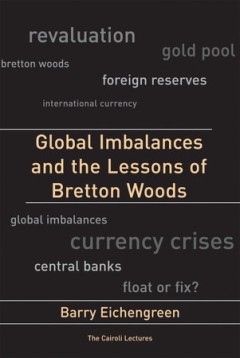
Global imbalances and the lessons of Bretton Woods
Why the current Bretton Woods-like international financial system, featuring large current account deficits in the center country, the United States, and massive reserve accumulation by the periphery, is not sustainable.OCLC-licensed vendor bibliographic record.
- Edition
- -
- ISBN/ISSN
- 9780262272209
- Collation
- 1 online resource (xiv, 187 pages) : illustrations
- Series Title
- Cairoli Lectures
- Call Number
- 332 EIC g

Dollarization: Debates and Policy Alternatives
Theoretical and empirical analysis of de jure dollarization.With the persistent instability of international financial markets, emerging economies are exploring new ways to reduce exposure to capital flow volatility. Some analysts argue that financially open economies are best served by more flexible regimes, while others argue in favor of extreme exchange rate regimes that have a strong commit…
- Edition
- -
- ISBN/ISSN
- 9780262286527
- Collation
- 1 online resource (ix, 341 pages) :illustrations
- Series Title
- -
- Call Number
- -
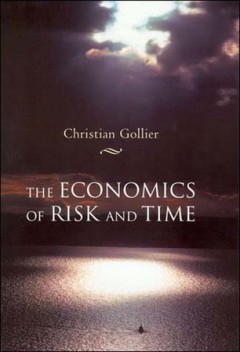
The Economics of Risk and Time
This book updates and advances the theory of expected utility as applied to risk analysis and financial decision making. Von Neumann and Morgenstern pioneered the use of expected utility theory in the 1940s, but most utility functions used in financial management are still relatively simplistic and assume a mean-variance world. Taking into account recent advances in the economics of risk and un…
- Edition
- -
- ISBN/ISSN
- 9780262274043
- Collation
- 1 online resource (xx, 445 pages) :illustrations
- Series Title
- -
- Call Number
- -
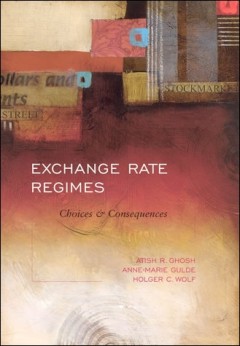
Exchange Rate Regimes: Choices and Consequences
An empirical study of exchange rate regimes based on data compiled from 150 member countries of the International Monetary Fund over the past thirty years.Few topics in international economics are as controversial as the choice of an exchange rate regime. Since the breakdown of the Bretton Woods system in the early 1970s, countries have adopted a wide variety of regimes, ranging from pure float…
- Edition
- -
- ISBN/ISSN
- 9780262273770
- Collation
- 1 online resource (232 pages) :illustrations
- Series Title
- -
- Call Number
- -
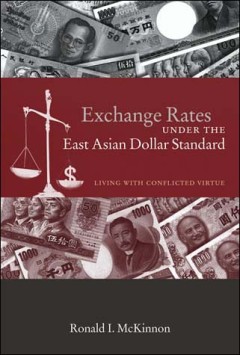
Exchange Rates under the East Asian Dollar Standard: Living with Conflicted V…
Essays by prominent scholars and policymakers honor one of the most influential macroeconomists of the last thirty years discussing the themes behind his work.OCLC-licensed vendor bibliographic record.
- Edition
- -
- ISBN/ISSN
- 9780262279550
- Collation
- 1 online resource (xix, 491 pages) :illustrations
- Series Title
- -
- Call Number
- -
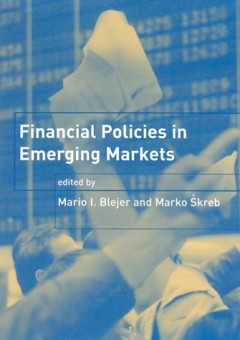
Financial policies in emerging markets
An overview of the financial vulnerability of emerging market economies and how the impact of exchange rate regimes affects this vulnerability.The 1994-1995 Mexican crisis was the first in a succession of financial crises to hit emerging markets in Thailand, Indonesia, Malaysia, South Korea, Russia, Brazil, Argentina, and Turkey. In almost all these cases, problems in the banking sector played …
- Edition
- -
- ISBN/ISSN
- 9780262268691
- Collation
- 1 online resource (vi, 259 pages) :illustrations
- Series Title
- -
- Call Number
- -
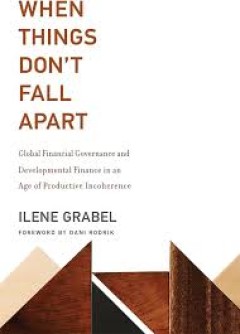
When things don't fall apart :global financial governance and developmental f…
An account of the significant though gradual, uneven, disconnected, ad hoc, and pragmatic innovations in global financial governance and developmental finance induced by the global financial crisis. In When Things Don't Fall Apart, Ilene Grabel challenges the dominant view that the global financial crisis had little effect on global financial governance and developmental finance. Most observers…
- Edition
- -
- ISBN/ISSN
- 9780262344043
- Collation
- 1 online resource (xxi, 372 pages)
- Series Title
- -
- Call Number
- -

Capital Flows and Crises
The implications of capital mobility for growth and stability are some of the most contentious and least understood contemporary issues in economics. In this book, Barry Eichengreen discusses historical, theoretical, empirical, and policy aspects of the effects, both positive and negative, of capital flows. He focuses on the connections between capital flows and crises as well as on those betwe…
- Edition
- -
- ISBN/ISSN
- 9780262272186
- Collation
- 1 online resource (viii, 377 pages) :illustrations
- Series Title
- -
- Call Number
- -
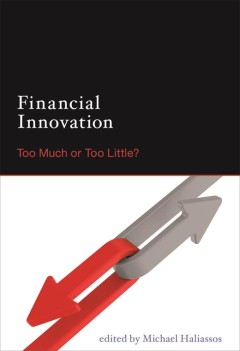
Financial innovation :too much or too little?
This text, which includes two contributions from Robert Shiller as well as a discussion of Shiller's 'MacroMarkets' tool, considers the key ingredients of financial innovation from both academia and industry; the postive potential but also the risks of financial innovation and the influence of producers on consumers.OCLC-licensed vendor bibliographic record.
- Edition
- -
- ISBN/ISSN
- 9780262305495
- Collation
- 1 online resource (xxii, 252 pages) :illustrations
- Series Title
- -
- Call Number
- -

nternational Currency Exposure
Issues in debates about foreign currency exposure -- the denomination of liabilities or assets in foreign currency.OCLC-licensed vendor bibliographic record.
- Edition
- -
- ISBN/ISSN
- 9780262340922
- Collation
- 1 online resource.
- Series Title
- -
- Call Number
- -
 Computer Science, Information & General Works
Computer Science, Information & General Works  Philosophy & Psychology
Philosophy & Psychology  Religion
Religion  Social Sciences
Social Sciences  Language
Language  Pure Science
Pure Science  Applied Sciences
Applied Sciences  Art & Recreation
Art & Recreation  Literature
Literature  History & Geography
History & Geography